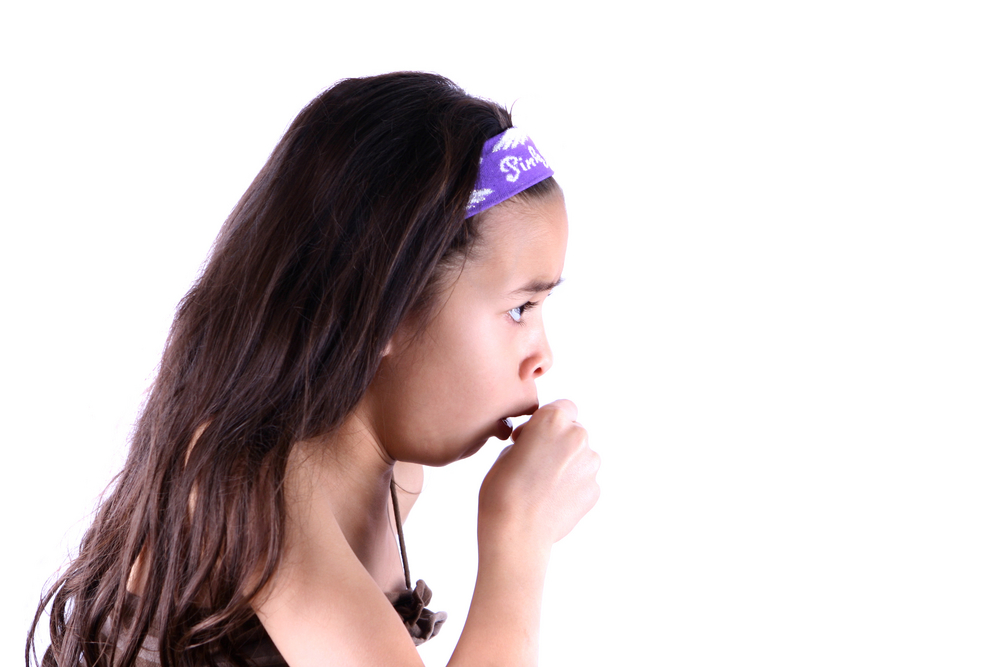Children's Coughs: Their Causes and Treatment

Coughing is a common and often frustrating experience for children, and it can be difficult for parents to learn how to help their little ones feel better. To better understand children's coughs and how to treat them, it's essential first to understand what causes them. In this blog, we'll take a closer look at the most common causes of children's coughs and explore the available treatment options.
Common Causes of Children's Coughs
A wide range of factors, including colds, flu, bronchitis, pneumonia, allergies, asthma, and more, can cause coughs in children. One of the most common causes of children's coughs is the common cold, usually caused by a viral infection. Children with a cold may also experience other symptoms, such as a runny nose, headache and sore throat.
Another common cause of children's coughs is flu, a more severe form of viral illness that can cause high fever, body aches, and extreme fatigue. Bronchitis and pneumonia are also common causes of coughs in children, and a bacterial infection often causes these conditions.
Allergies like hay fever or allergic rhinitis may cause children's coughs. For example, allergic rhinitis can cause a runny or stuffy nose, itchy eyes, and coughing. In addition, children with asthma may experience a persistent cough as a symptom of their condition.
Understanding Chronic Cough in Children
A chronic cough is lasts for more than eight weeks. Various factors, including allergies, asthma, post-nasal drip, and acid reflux, can cause chronic coughs in children. If your child has a chronic cough, it is essential to see a doctor to determine the underlying cause and to receive appropriate chronic cough treatment.
Diagnosis of Children's Coughs
When a child is experiencing a persistent or severe cough, it is essential to seek medical attention to determine the underlying cause and develop allergy cough treatment. The following steps are commonly involved in the diagnosis of a child's cough:
- Medical history: The healthcare provider will ask about the child's symptoms, including the duration, frequency, and type of cough, as well as any other symptoms that may be present. The provider will also ask about the child's medical history, including any underlying medical conditions and any recent exposures to illnesses or irritants.
- Physical examination: A health expert will perform a physical exam, including listening to the child's breathing and checking for any signs of wheezing, chest pain, or other problems that may indicate a more serious underlying condition.
- Tests: Depending on the child's symptoms and medical history, the healthcare provider may order additional tests, such as a chest X-ray, blood test, or allergy test, to help determine the cause of the cough.
Treatment of Children's Coughs
The cough treatment will depend on the underlying cause. However, the following are common treatments for children's coughs:
- Viral infections: If a viral infection causes the cough, treatment involves supportive care, such as increasing fluid intake, using a humidifier, and giving over-the-counter cough medicine for kids if appropriate. Common cold is a condition that occurs due to viral infetions.
- Bacterial infections: If a bacterial infection causes a cough, antibiotics may be prescribed.
- Allergic cough: In cases of allergic cough, medications, such as antihistamines or decongestants, may be prescribed to help relieve symptoms.
- Chronic cough: In children with chronic cough, applying medications and lifestyle changes, such as avoiding triggers and improving indoor air quality, may be necessary to manage symptoms.
It is important to note that over-the-counter cough medicine for kids is not recommended for children under the age of 4, as the safety and effectiveness of these medications in young children have not been established.
Allergy Cough Treatment
Several treatment options are available if allergies cause your child's cough. Over-the-counter (OTC) medicine for cough and cold, such as antihistamines, decongestants, and nasal sprays, can help relieve allergy symptoms and reduce coughing. If OTC medications are ineffective, your doctor may prescribe more vital medicines, such as a corticosteroid nasal spray or leukotriene receptor antagonist.
In addition to medication, avoiding allergens and using air filters can help reduce the severity of allergy symptoms and coughing. Immunotherapy or "allergy shots" is often recommended to help desensitize your child to specific allergens if your child's allergies are particularly severe.
Complications of Children's Coughs
While a child's cough may seem like a minor inconvenience, it is essential to understand that it can lead to severe complications in some cases. These can include:
- Pneumonia: It is a serious infection of the lungs that can cause severe cough, fever, chest pain, and shortness of breath. Children with a persistent cough are at a higher risk of developing pneumonia, especially if other symptoms, such as fever or wheezing, accompany the cough.
- Ear infections: A persistent cough can also increase the risk of ear infections, especially in children prone to them. The reason is that the pressure changes in the middle ear during coughing can cause fluid to build up in the ear, which can then become infected.
- Worsening of underlying medical conditions: Children with underlying medical conditions, such as asthma or cardiac problems, may experience worsening symptoms if they have a persistent cough. For example, a child with asthma may experience increased wheezing or shortness of breath, while a child with heart disease may experience chest pain or palpitations.
Conclusion
Children's coughs can range from simple and harmless to severe and complicated. While many causes of children's coughs can be treated at home with over-the-counter medicine for cough and cold or other remedies, it is essential to seek medical attention if the cough persists or is accompanied by other symptoms. With the correct diagnosis and cough treatment plan, most children's coughs can be effectively managed to prevent complications from developing. Parents should be aware of the potential causes and treatments of children's coughs and to work closely with an expert doctor to ensure their child receives the best care possible.






